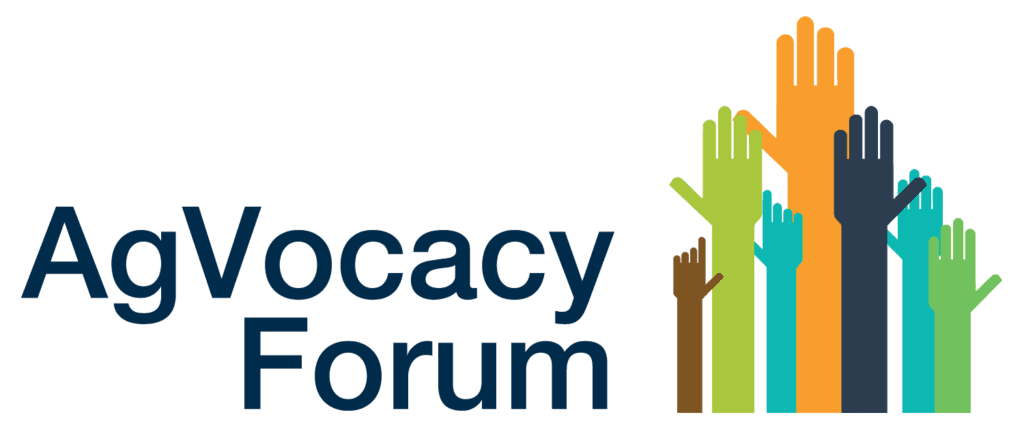Feb 21, 2018Bayer AgVocacy Forum starts Feb. 25
The 2018 Bayer AgVocacy Forum, Feb. 25-26, will span topics from new innovations to impactful collaborations.
This year’s new “AgTech Talks” segment will showcase experts discussing what the industry can do to embrace innovation and support sustainable agriculture, with speakers representing many aspects of the ag and food sectors.
The Forum will welcome back moderator Frank Sesno, director of the School of Media and Public Affairs at George Washington University and former CNN correspondent, anchor and Washington, D.C.bureau chief. Frank will lead the discussion among some of agriculture’s most exciting and innovative leaders today. Farm economist and agricultural economics professor Jayson Lusk will deliver the keynote address on the current state of the farm economy and implications of the 2018 Farm Bill. Additionally, leaders from the Foundation for Food & Agriculture Research and the Food & Agriculture Organization of the U.S. will discuss how the ag industry can work together with their groups toward a common goal of sustainably feeding our growing population.
Other guest speakers include:
- Juan Sabater, Grower, West Coast Tomato Growers
- Jake Reisdorf, 15-year-old beekeeper, Founder of Carmel Honey Company
- Jayson Lusk, Farm Economist, Professor and Head of Agricultural Economics Department, Purdue University
- Greg Crutsinger, Drone Ecologist, Scholar Farms
For a full list of speakers, visit https://www.cropscience.bayer.us/news/events/2018-agvocacy-forum.
New technology and innovation are the lifeblood of many industries, and agriculture is no different. Technologies like sensors and aerial imaging let growers diagnose disease outbreaks before they’re visible to the naked eye. Artificial intelligence lets growers who encounter an unknown weed go from in-field photo, to identification, to management plan in a matter of minutes. Soon, predictive analytics will be so ingrained in how farmers grow crops that companies will be able to offer something unheard-of since humans started growing food: more predictable outcomes. And innovation isn’t just happening above ground and in the sky; just as much is happening underground as innovators use the soil’s own microbiome to give plants a boost from day one.
“When we started these forums 13 years ago, we could not have imagined the technology growers can access today. And we are only seeing the beginning of this transformative innovation,” said Adrian Percy, Head of Research & Development and Executive Committee Member for Crop Science, a division of Bayer.
“To maintain this momentum, we must reach beyond our own doors and tap into the range of new technologies that not just agriculture but also other industries, such as engineering and IT, are developing. These new solutions will help growers improve their business as they sustainably meet the food demands of a growing population at a time when our natural resources are more precious than ever.”
While new technologies in agriculture enable growers to improve their business as they sustainably produce more with less, consumers don’t always understand the benefit and have expressed concern about its long-term impact.
A recent survey* Bayer conducted found 95 percent of American consumers believe ag innovation will help farmers grow more food to meet the demands of the future. Yet, some are not sold on the tools that are mainly responsible for farming’s success: many of those surveyed believe treating crops with pesticides to control weeds, pests or diseases does more harm than good, and even more said they avoid purchasing genetically modified foods.
Even though some consumers are concerned about the impact of agricultural innovations, Bayer is optimistic about the future. “Among survey respondents who believe agriculture innovations don’t have a positive or negative impact or that they do more harm than good, nearly 60 percent say they would be more likely to support technologies if they were to learn how these innovations could help address the world’s most pressing food issues,” said Rob Schrick, Strategic Business Lead of Broad Acre Crops for Bayer. “That’s why this forum and other AgVocacy efforts are critical to helping bridge the divide and ensure growers have access to the tools required to grow a sustainable food supply.”
Join the conversation by following @bayer4cropsus on Twitter and Instagram. Panels and discussions will also be broadcast live from Anaheim in the AgVocate Facebook group. For more information on the event, visit the 2018 Bayer AgVocacy Forum section of the Crop Science website.
*U.S. results from Ebiquity global survey, July 2017.















